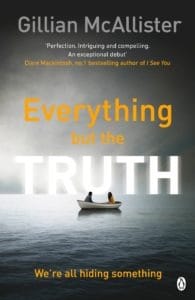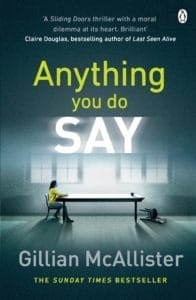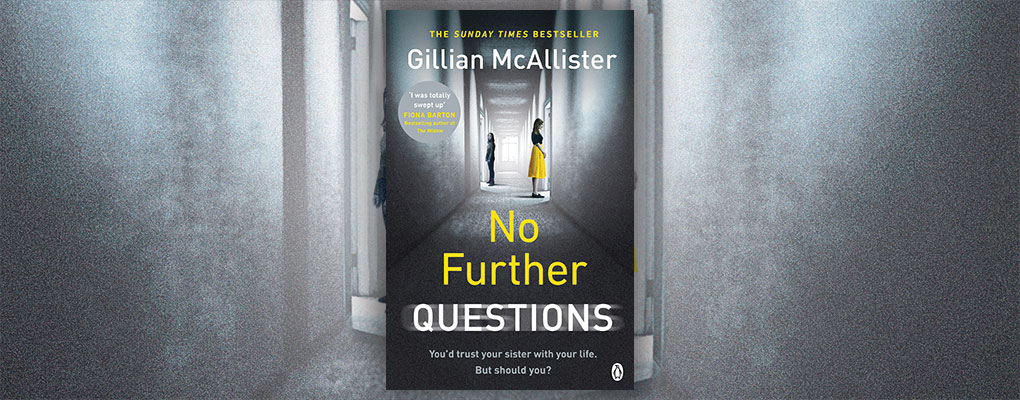Books
Gillian McAllister: when lawyers write legal fiction
That I am both a lawyer and a writer of psychological thrillers with a legal element is often mentioned in passing, by press and Amazon reviewers, friends and family. I’ve always found it interesting because the area of law I practise has nothing to do with the kind of novels I write. I don’t attend court and I certainly don’t have anything to do with crime. My office job is very far removed from the dark themes I write about.
 That being said, it can’t be a coincidence that I like to read and write novels that are centred on the justice system. My first novel, Everything but the Truth, is about a woman who discovers her boyfriend has committed a crime. My second, Anything You Do Say, is about a woman who injures a sexual predator on the way home from a night out and goes to trial for his attempted murder. No Further Questions is about a woman whose sister is on trial for the worst crime imaginable. All of my novels deal – directly or indirectly – with those accused, with moral dilemmas, and ruminate on the notion of whether justice can ever be imparted outside of the court; in Anything You Do Say in particular I write about whether somebody who commits a crime in a complete accident – and who will never offend again – needs to go to prison as part of retribution, or if that ruins two lives instead of one.
That being said, it can’t be a coincidence that I like to read and write novels that are centred on the justice system. My first novel, Everything but the Truth, is about a woman who discovers her boyfriend has committed a crime. My second, Anything You Do Say, is about a woman who injures a sexual predator on the way home from a night out and goes to trial for his attempted murder. No Further Questions is about a woman whose sister is on trial for the worst crime imaginable. All of my novels deal – directly or indirectly – with those accused, with moral dilemmas, and ruminate on the notion of whether justice can ever be imparted outside of the court; in Anything You Do Say in particular I write about whether somebody who commits a crime in a complete accident – and who will never offend again – needs to go to prison as part of retribution, or if that ruins two lives instead of one.
I was talking to my boyfriend – also a lawyer – about this just yesterday and we agreed it might be something to do with the way the legal training is imparted. At law school, you’re trained to think in quite a logical and evidence-based way. Most of my novels have some sort of evidence at their heart – and in Everything but the Truth there are actual exhibits of evidence – and I tend to let that drive the main story. You’re also taught to look at cases from both sides, which is another thing I like to do in fiction. I like to tell the victim’s story but often the perpetrator’s, too: good people who do bad things, or who only had two poor choices at their disposal, or people who make split-second decisions that change their lives forever.
 More than anything, though, I’m very lucky to spend a lot of time with lawyers. They’re some of the most thoughtful, dynamic and linguistically gifted people I’ve ever met: it’s a wordy profession. And so each time there is an interesting case on the news or a big crime story, I’m very lucky to be able to discuss it with a range of people. A friend who works in corporate law will have a different view to another who works in tort law, and I think these probing conversations are what inform my novels.
More than anything, though, I’m very lucky to spend a lot of time with lawyers. They’re some of the most thoughtful, dynamic and linguistically gifted people I’ve ever met: it’s a wordy profession. And so each time there is an interesting case on the news or a big crime story, I’m very lucky to be able to discuss it with a range of people. A friend who works in corporate law will have a different view to another who works in tort law, and I think these probing conversations are what inform my novels.
I often go and read about cases that have swept the nation, and try to work out why. These ideas often then form the building blocks for my books. Not the story itself, but usually a unique perspective: how do the parents feel, what would it feel like if this person was your brother, what would you do if you found yourself in this scenario?
So while the law I practise isn’t crime, I think that once you’re a lawyer, you’re a lawyer forever, and it gives you a great perspective on justice and the law but also people, and why they do the things they do.
How many of Gillian McAllister’s psychological thrillers have you read? Let us know in the comments below!
1 Comment
Join the discussion
Please note: Moderation is enabled and may delay your comment being posted. There is no need to resubmit your comment. By posting a comment you are agreeing to the website Terms of Use.



Totally convincing